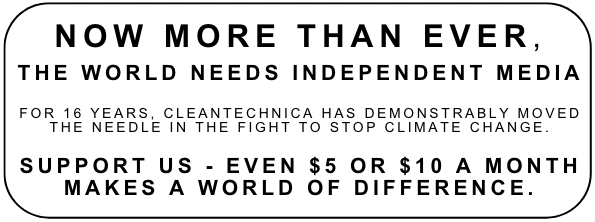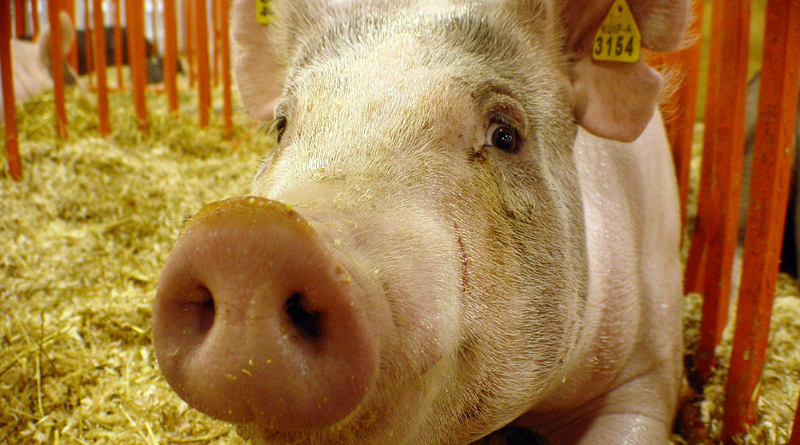
Sign up for daily news updates from CleanTechnica on email. Or follow us on Google News!
Burps and farts. They’re the fodder of fun prepubescent comedy. When the burps and farts come from livestock, though, they generate significant amounts of methane, a greenhouse gas that is 25 times more potent than carbon dioxide in warming the planet. In fact, animal agriculture produces more greenhouse gas emissions than all the world’s cars and trucks combined.
Denmark is doing something about the dilemma. It’s enacted the world’s first belch and manure tax to make the agricultural sector step up and take responsibility for its role as producing the largest share of climate pollution. As the New York Times chronicled, with five times as many pigs and cows in Denmark as there are people and nearly two-thirds of its land is taken up by farming, agriculture now is taxed on the pollution it generates, with the aim to change behavior.
The political agreement is the legislative consequence of the agreement on a green tripartite, which the government entered with several organizations, including Denmark’s Nature Conservation Association and Agriculture & Food. The tax has the backing of key industry and environmental groups. The Danish minister for climate, energy, and utilities, Lars Aagaard, said it showed the country’s willingness to take action and celebrates the Danish model of a broad political majority in the Danish parliament. “Involvement of the sectors that will be affected by the tax and involvement of environmental stakeholders,” he added, explaining these are “things that we could all benefit from if the rest of the world could foster such cooperation in the climate fight.”
The tax is part of a larger effort to reduce greenhouse gas emissions by 70% from 1990 levels by 2030 and eventually restore some farmland to its natural form. According to Danish daily The Copenhagen Post, 250,000 hectares of new forest will be planted, and 140,000 hectares of peatlands that are currently being cultivated will be restored to natural habitat.
Denmark is the first country in the world to introduce a carbon dioxide tax on agriculture, which could lay the groundwork for a restructured food industry, the Institute for Energy Research concludes. Not surprisingly, Denmark’s efforts to reign in agricultural pollution met with a lot of pushback from the powerful industrial agricultural industry, which has fought back with bluster and threats.
It’s the same lobbying that happens all the time in the US when calls to clean up pollution from industrial agriculture are heard in legislative chambers. But can such a tax even get an airing in the divided US, where the incoming Trumpsters are looking to deregulate rather than to provide more support for climate action?
Reducing Methane can Keep Global Warming in Check
Contrary to common belief, it’s actually cow belching caused by a process called “enteric fermentation” that contributes to methane emissions, NASA explains. Enteric fermentation is the digestive process in which sugars are broken down into simpler molecules for absorption into the bloodstream. This process also produces methane as a by-product. However, a small percentage of methane is also produced in the cow’s large intestine and released. Additionally, significant amounts of this greenhouse gas are generated in settling ponds and lagoons used for processing cow manure.
There’s hope, though. Because methane is a relatively short-lived greenhouse gas, it will dissipate in little more than a decade. So tackling methane emissions now can lower greenhouse gas levels and thus help slow climate change almost immediately.
Europe’s largest dairy cooperative, Arla Foods, has agreed to support the Denmark tax on livestock. The cooperative doesn’t necessarily favor a tax, company officials said, but because the compromise is something dairy farmers can live with. “They understand they need to do it; they want to do it,” Peder Tuborgh, the company’s chief executive, said. “They know it is protecting their reputation, and they’re still producing.”
What’s Better: A Tax or Financial Assistance to Reduce Livestock Burps and Farts?
The 2022 Inflation Reduction Act directed the EPA to collect a tax on methane emissions from oil and natural gas facilities by adding an amendment to the Clean Air Act. The methane tax rates align with most carbon tax proposals introduced in Congress. It starts at $900 per metric ton of methane in 2024 and will rise to $1500 in 2026, which converts to about $36 and $60 per metric ton of carbon dioxide equivalent (CO2e). However, the base of the methane tax is relatively narrow. It targets the oil and natural gas sources, accounting for about 29% of US methane emissions.
The Methane Emissions Reduction Program provides $1.36 billion in financial and technical assistance through multiple funding opportunities, establishes a Waste Emissions Charge (WEC) for methane, and requires EPA to revise the Greenhouse Gas Reporting Program (GHGRP) subpart W regulations for the oil and gas sector.
But these are types of financial assistance to incentify producers from emitting methane — not a tax. A US methane tax on animal agriculture emissions would function in a way similar to the sales tax; both eventually decrease the supply of goods as the additional cost would discourage production.
An exposé from Earth.org explains that introducing a methane tax may provide an incentive for the agricultural industry to adopt methods that are more sustainable to raise cows. Although 14% of emissions come from livestock, how livestock is managed makes a huge difference in the outcome of emissions.
Indeed, the amount of methane emissions from cattle highly depends on the level of feed intake, type of carbohydrate in the diet, feed processing, and many other variables. Red meats like beef have a much higher carbon footprint than white meat like chicken, considering that beef has an average of 295 kg CO2-eq per kg of protein. In contrast, chicken has an average below 100 kg CO2-eq per kg of protein.
Final Thoughts about Grazing Animals, with their Burps and Farts
Grazing animals aren’t all bad. They convert fibrous plants that people can’t eat into protein-rich meat and milk. Cows and sheep are a significant source of human food. The world’s poorest people raise a cow or sheep or goats as a form of wealth. The act of cattle grazing cycle mitigates climate change by eating the grass instead of allowing as much decomposition to occur on the ground. Scientists are researching solutions to the burps and farts, such as breeding low-methane livestock and tinkering with the microbes that produce the methane in grazing animals’ stomachs.
But these small truths mask the enormity of livestock burps and farts. The problem with these approaches is that reducing emissions intensity does nothing to reduce the absolute amount of methane in the atmosphere unless farmers compensate for the increased production by reducing their herd sizes, rather than increasing their total output. Vegetarians like me advocate primarily for plant-based diets, recognizing the health and environmental benefits of reducing herds by renouncing meat.
With the world facing an urgent need to reduce methane to contain climate change, a conundrum exists in which little political will to reduce consumption of beef and milk prevails. The US needs to step up and enact an agreement much like that in Denmark, which aims to form the long-term basis for a historic reorganization and transformation of Denmark’s land and of food and agricultural production.

Featured image by Peter O’Connor aka anemoneprojectors (BY SA 2.0 license)

Chip in a few dollars a month to help support independent cleantech coverage that helps to accelerate the cleantech revolution!
Have a tip for CleanTechnica? Want to advertise? Want to suggest a guest for our CleanTech Talk podcast? Contact us here.
Sign up for our daily newsletter for 15 new cleantech stories a day. Or sign up for our weekly one if daily is too frequent.
CleanTechnica uses affiliate links. See our policy here.
CleanTechnica’s Comment Policy




